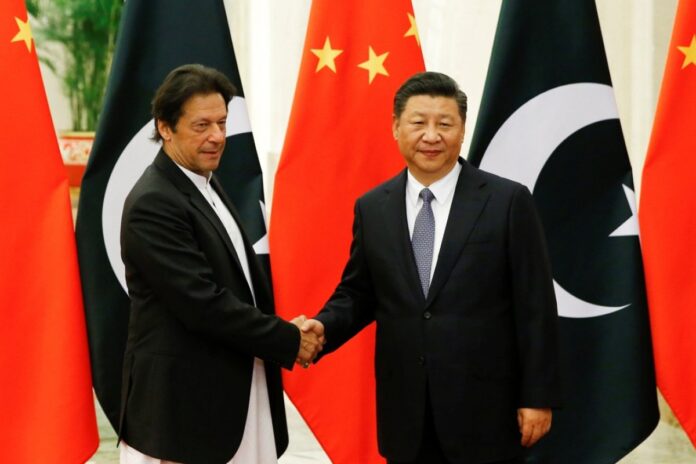
Prime Minister Imran Khan’s latest Beijing demands a critical introspection from two angles. One is traditional Chinese friendly hospitality and the other one relates to real-political and economic development strategies.
Let us dissect the two; as usual the PM was accorded the highest protocol i.e. President Xi met him beside hosting a lunch for him. The Chairman of the National Peoples’ Congress, who is the Nr 3 in the 7-member hierarchy of China, also received Khan. This is a rare protocol offered to only very very close friends, not to mention the meeting with the Chinese prime minister.
The unwavering message from this meeting; we treat Pakistan like a family and such visits mean we are visiting family members. You are always welcome.
Secondly – and that is worrisome – is the messaging on Pakistan’s tardy actions and responses to issues of urgency. The Chinese friends have conveyed this several times, indirectly though, since the inception of CPEC.
Such extremely veiled messaging to the Pakistani leadership in general followed even PM’s latest visit; with the CPEC under Belt and Road Initiative, the ball is in your court. Extending a few billion dollars in aid and investment is peanuts but you have to come prepared before you place such demands on China.
The case in point was the absence of any word on the MLI – the much-hyped $8 billion railway project.
It was quite a cutting commentary with regard to some of the less-thinking-more-talking ministers who come across as musketeers at best, supported by equally pliant and conformist officials.
“The ball is in Pakistan’s court. Even the PC1 is not approved by your – Central Development Working Party (CDWP) , still a few steps away from approval by ECNEC,” an official in Beijing said, pointing out that commercial negotiations will ensue only after these approvals.
“Put your house in order, come prepared and China may be ready to even extend a cheap soft loan for the ML1, this is a very small amount for us,” said another official.
He also alluded to the over four years Pakistan has taken to clear ground for the urgently needed Gwadar power plant and the airport.
Part of this message also revolves around the civil military relations; do your leaders trust each other at all? If yes, why did the army chief have to accompany the prime minister?
“PM Khan himself carries enough weight to represent Pakistan on the foreign front and plead his country’s case,” said an official in Beijing. For us both the PM and the COAS are equally respectable and important but we wonder if both have to always tag along,” wondered the highly placed official. This makes us a little uncomfortable on the PM’s relations with the army, he added.
And another direct and clear message had already come a couple of days before Khan’s Beijing visit from the Chinese ambassador in Pakistan, Mr.Yao Jing.
“Only the China Pakistan Economic Corridor (CPEC) agreement was not going to guarantee the development of the whole economy of Pakistan, but was a small part of it,” Jing had said at a dialogue held by the Karachi Council on Foreign Relations.
“We are waiting for the Free Zone policy of Pakistan government, after which we will launch 19 projects in Gwadar alone. China is spending $40 million annually to keep Gwadar port functional, as it is now started commercial operations as well,” Ambassador Jing informed the audience.
Jing also spoke of the thus far unresolved biggest issues of Gwadar i.e.electricity and fresh water, and promised the work on the 300 megawatt power plant and a desalination plant would soon start.
Right now, it is a mismatch between a well-calibrated, long term Chinese commitment and a sloppy, crude and unimaginative Pakistani response, also undermined by numerous personal and institutional vested interests.
The over 200 million Pakistanis deserved better and honest approaches by their civilian and military leaders to fully exploit the opportunity called the CPEC.




